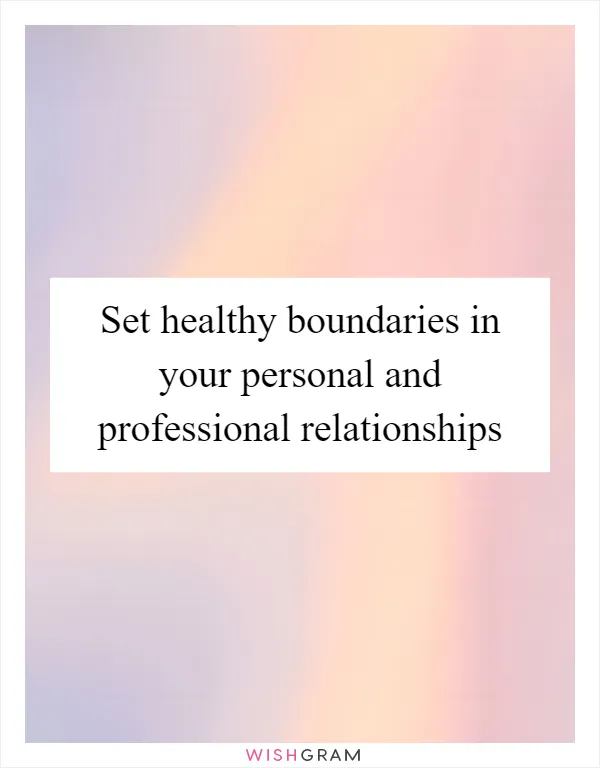Set healthy boundaries in your personal and professional relationships
Setting healthy boundaries in your personal and professional relationships is crucial for maintaining your well-being and ensuring positive interactions with others. Boundaries act as guidelines that define what is acceptable and what is not, helping you establish a sense of control and respect in your relationships. By setting boundaries, you can protect your emotional and physical space, maintain your values, and foster healthier connections. Here are some key points to consider when setting boundaries:
1. Recognize your needs and values: Start by understanding your own needs, values, and limits. Reflect on what makes you feel comfortable and what crosses the line for you. This self-awareness will help you establish boundaries that align with your personal and professional values.
2. Communicate openly and assertively: Clearly express your boundaries to others in a respectful and assertive manner. Use "I" statements to convey your feelings and needs, such as "I feel uncomfortable when..." or "I need some alone time to recharge." Effective communication is essential for others to understand and respect your boundaries.
3. Be consistent: Consistency is key when it comes to maintaining boundaries. Stick to your boundaries and avoid making exceptions unless absolutely necessary. Consistency helps establish a sense of predictability and reinforces the importance of your boundaries to others.
4. Practice self-care: Setting boundaries is an act of self-care. Prioritize your well-being by taking time for yourself, engaging in activities that bring you joy, and setting aside personal time. By nurturing yourself, you'll have the energy and resilience to maintain healthy boundaries.
5. Learn to say no: Saying no is not a negative thing; it's a way of respecting your own limits. Understand that it's okay to decline requests or invitations that don't align with your boundaries or values. Saying no allows you to prioritize your own needs and avoid overcommitting yourself.
6. Be aware of red flags: Pay attention to any signs of disrespect or violation of your boundaries. If someone consistently disregards your limits or makes you feel uncomfortable, it may be necessary to reassess the relationship and consider whether it is healthy for you.
7. Seek support if needed: If you find it challenging to set or maintain boundaries, don't hesitate to seek support from trusted friends, family, or professionals. They can provide guidance, advice, and encouragement as you navigate the process of establishing healthy boundaries.
Remember, setting boundaries is not about being selfish or pushing others away; it's about creating a healthy balance in your relationships. By setting clear
